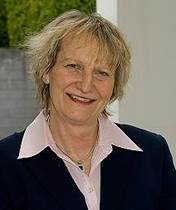Intellectuals and universities in neoliberal times

Intellectuals are classically imagined as heroic individuals, smoking Gauloises in dingy cafes on the Left Bank; in reality intellectual labour, especially since the rise of the research university, has been increasingly collectivized. A global economy of knowledge production and circulation has been constructed. Knowledge institutions, in turn, have been increasingly impacted by the global neoliberal regime, commodifying their output, corporatising their internal processes, and undermining their sustainability. The destruction of the public TAFE system in Australia, in the last generation, is an instructive case. Australian universities too have seen a collapse of government funding, and a growing distance between corporate-style managers on the one hand, and an increasingly insecure intellectual and support workforce on the other. In this lecture I will explore this story and discuss consequences for intellectual work and workers, and for the contemporary knowledge system.
*Please note the venue has changed for this event*
Professor Raewyn Connell is one of the most prominent social scientists in Australia, not to mention internationally, with almost 53,000 citations [Google Scholar] to her name and a profusion of internationally significant papers and books. Professor Connell became known for research on large-scale class dynamics (Ruling Class, Ruling Culture, 1977; Class Structure in Australian History, 1980), and on how class and gender hierarchies are made and re-made in the everyday life of schools (Making the Difference, 1982; Teachers’ Work, 1985). She developed a social theory of gender relations (Gender and Power, 1987; Gender: in World Perspective, 2002/2015), which emphasised that gender is a large-scale and dynamic social structure not just a matter of personal identity. In applied fields, she has worked on poverty and education (Schools and Social Justice, 1993), sexuality and AIDS prevention, and gender equity. She is best known internationally for studies on masculinity. She was one of the founders of this research field and her book Masculinities (1995, 2005) is the best known in the field. The concept of ‘hegemonic masculinity’ has been particularly influential and has attracted much debate. As well as doing some of the pioneering empirical work in this field,Raewyn has written extensively about its applications to education, health, and the reduction of violence. Since the 1960s, Raewyn has been concerned with the politics of intellectual life, gradually developing a sociology of intellectuals that focussed on the labour process of knowledge formation and circulation. Based mainly in Australia, and travelling extensively since the 1980s, Raewyn developed a critique of the Northern bias of mainstream social science and the colonial structures of knowledge. Her book Southern Theory (2007) discusses intellectuals and social theories from the global periphery and explores paths towards knowledge democracy on a world scale. More recently Raewyn has applied this approach to gender and masculinity, and to neoliberal politics and economics. Her writings have been translated into eighteen languages.
RSVP essential, please follow the link to secure your ticket.






